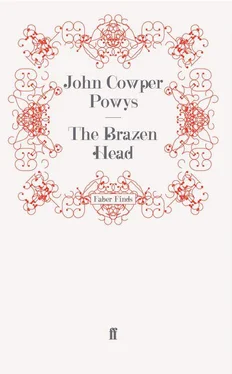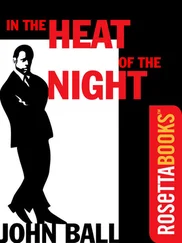“Hic est Filius Meus dilectus in quo mihti complacuit . This is my Beloved Son in whom I am well pleased.”
Had some observant passer-by, endowed, let us suppose, with the power of reading a person’s thoughts, caught the drift of the Friar’s murmured words, he might well have been astonished that so great a scientist, whose inventions were beginning to be the wonder of the whole intellectual world, should be muttering at a crisis like this sentences that were involved in the very foundation of the Christian faith. The truth was that Roger Bacon had taken Aristotle for granted with one side of his nature, and the New Testament equally for granted with the other side of his nature, and had never, as Albertus of Cologne did, brought them into logical opposition to each other and into logical relation with each other.
But, after all, Friar Roger’s ways are the ways of Nature herself in regard to these abysmal matters. Out of the confusion which she seems to prefer to any orderly workshop, Nature seems anxious to thicken out the drama she has inaugurated by creating ironic commentaries upon her own doings, whose choruses are not so much the expression of approval or disapproval as of humorous recognition, and produce the effect of a faint orchestral accompaniment, an accompaniment that reaches us from extremely far away and possibly from a sphere totally different from our own.
If Friar Bacon had not been so absorbed in his interior vision of the signs of the zodiac and of the relation between Mercurius and Virgo and in the agitating conclusion he had reached — for to him by far the most interesting aspect of astronomy was astrology — about the perilous influence of our earthly satellite, the Moon—“Luna significat super-nigro-manciam et mendacium — The moon is significant of higher black magic and trickery”—he would have doubtless had some striking commentary to make upon what was now going on in front of those closed gates of Lost Towers.
All that morning Albertus Magnus had been saying to himself: “Whatever it was that brought all these people here and brought me on the top of them all, I’d be worse than the self-conscious fool I am if I didn’t take advantage of it in some way. That’s what’s the matter with me. I’m no good at creating situations. I just accept them and make the necessary plunges and darts and dives and gestures as seem called for.
“The one single act of my whole life”—so the great teacher’s thoughts ran on, even after he had begun acting his part for today—“that I did entirely on my own and under no influence from outside was when I gave up that bishopric: aye!” and Albertus indulged in a grotesque dramatic shudder and wrinkled up all his malleable features; “aye! aye! but it was an appalling experience, those two years of being a bishop! But what on earth am I going to do with this chance the Lord has thrown in my path?”
And then the inspiration came to him.
“Sex is the maddest force there is. Why then not consecrate this madness? All the way down the history of our race — not to speak of certain beasts and birds — males and females have gone through curious ceremonies to celebrate this union. When we Christianize marriage, it is to demonstrate our share in Christ’s own desperate and eternal act of faith that He was the Son of God. Sex is the greatest pleasure and the greatest pain in life; and the ceremonious consecration of the joining together of sex-mates has been the instinctive retort of all animal life to the insanity of sex from the beginning of the world.”
Thus did the thoughts of Albertus Magnus run on, even while he began the quaint performance into which his “guardian angel”, or, if you like, “his conscience”—although that word introduces just as many insoluble riddles — had now precipitated him.
“Come hither my son Tilton, sculptor and carver and builder of a shrine! Come hither my daughter Una, of the family of Pole, largest of all the families upon the said manor! If you Tilton take you Una to be your wedded wife, and if you Una take you Tilton to be your wedded husband, all the old deep rifts, between those who work on the land and those who own and fight for the land, will be healed!”
To the absolute amazement of Brother Tuck and of a good many others of those who were watching this queer scene, but not to the surprise of young John, who was now standing at Sir Mort’s side and explaining to him more things than Sir Mort could or would or can be imagined ever wanting to understand, both Tilton and Una now appeared hand-in-hand before Albertus Magnus.
So accustomed was Albertus to this particular ceremony, every word of which he knew by heart, that it was not long before this pair’s union was consecrated, consecrated before men and before birds and beasts and angels and demons, consecrated as one flesh.
This had no sooner been done than bursting forth from the band of people who surrounded Sir Mort, and followed with obvious anxiety by both the Baron Boncor and his boy-knight Sir William, there emerged in a furious rush of frenzy like a shrieking Valkyrie the figure of Lady Ulanda, whose whole body — since to increase her speed, or perhaps deliberately to enhance the effect of her wrath, she kept tearing from her person one flimsy garment after another — was positively contorted with emotion.
It was purely against Friar Bacon that her anger was directed; for, by his cold refusal on that one fatal visit of hers to his room, to play the part of her dresser-up and devoted medico-magico, he had hurt that centre of a woman’s life-illusion, a blow to which goes deeper into her essential being than if you cut off one of her arms at the wrist or one of her feet at the ankle.
When she reached the spot where the gigantic Peleg was standing, with Roger Bacon’s Brazen Head upon his shoulder, to the pedestal of which — for the Head had nothing except that neck upon which Ghosta had confessed to have had, in complete nakedness, a mysterious sexual ecstasy — Ghosta’s perfect white arms were now raised, Ulanda for one second stood still.
Then with a wild cry she flung herself, not only against the weird Object, alive and yet not alive, created by the Friar, but upon all three of them, clawing at Peleg’s throat with one hand, seizing Ghosta’s right arm with the other, and shaking them both so violently that the Brazen Head fell to the ground!
By what some would call Providence, others Chance, and yet others the protective power of the Devil, the Brazen Head descended to the earth the right way up, and indeed sank into a patch of grass so smoothly and easily that it rested there at once in complete quiescence, as if that little patch of greenery had risen to meet it out of the abyss as its destined home.
There was something about this startling event, whether you considered it an event in favour of the Head or against the interest of the Head, that affected everybody who was looking on. The person who was most affected was young John; for his link with Roger Bacon was so intimate and close that to see Roger’s creation fall from the giant Peleg’s shoulder clear to the ground was more than young John’s heart could bear, and he acted as a child might have done.
He fell on his knees, covered his face with his hands, and burst into a fit of violent sobbing and weeping. Young John’s sobs, however, since he knelt on the ground and pressed his hands to his face, were not loud enough to turn people’s attention away from Albertus Magnus.
This simple-minded great man, who had become without knowing it the most important teacher in the world, having successfully married John’s dear brother Tilton to the beautiful Una or Oona and thus having ended the feud between the old rebel Dod Pole and the bailiff-family of Sygerius, had evidently, in that energetic innocence and inspired foolhardiness that characterized him, decided to continue his marriage campaign and had summoned, loudly and clearly, Raymond de Laon and Lil-Umbra to come before him.
Читать дальше











